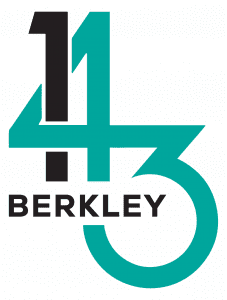While you and your small to medium-sized business face a unique set of goals and challenges, you’re probably in one of two camps right now: either starting to build your marketing strategy or ready to expand on existing plans. When it comes to achieving these targets, the choice between agencies vs freelancers arises—but how can you decide which is best for your needs?
Let’s first define an agency and a freelancer before diving into the pros and cons of each.
-
What is a marketing agency?
- A marketing agency is a company that provides a full suite of marketing services to other businesses. Agencies can offer market research, advertising, public relations, social media marketing, and more in one package. They typically specialize in specific industries due to prior experience and connections with publications and experts in those fields.
-
What is a marketing freelancer?
A marketing freelancer is an independent contractor who offers one or a few specific skills. While freelancers are usually autonomous, they have a lot of expertise in their area of focus. They also offer the bonuses of being flexible, being able to handle quick turnarounds, and being responsive. There are pros and cons to both options. Here’s a closer look at the strengths and weaknesses of agencies and freelancers.
-
Skill Sets
A well-rounded agency includes experts in varying areas. Typically there’s a strategist, copywriter, graphic designer, public relations professional, and digital marketer, among other titles. Having a team like this at your disposal means you can be more hands-off while enjoying the benefits of a well-planned and executed marketing campaign (though we should say you should never be completely hands-off—it’s still your business, after all).
A well-rounded freelancer is hyper-focused on one or a few specific skills. While this might sound like a huge downgrade from having an entire agency team, consider the following: freelancers are experts you have a direct line to, and they’re far more likely to teach and guide you through their process, meaning you’ll be more hands-on than with an agency. A good freelancer makes it easy and quick to iterate while teaching you a bit about the process.

-
Project Management
With an agency, the marketing process is managed more behind the scenes. However, you’ll get an account executive who will act as your point of contact for their entire team. In some cases, this simpler method of communication is preferable, especially for larger and more complex projects or if you’re a business owner with little time to spend on marketing work.
Freelancers act as account executives while executing the work itself. This setup reduces the risk of miscommunications by removing the middleman and allows business owners to be a bit more hands-on with the work. Thanks to their independence, most freelancers can complete projects faster than an agency. Lastly, a quality freelancer is just as (if not more so) communicative as an agency. No matter which way you lean, agencies and freelancers worth their salt will keep you in the loop.
-
Scale of Work
Communication matters for any project size, but agencies and freelancers have strengths and weaknesses here too. Agencies can typically get better results for large multimedia/multi-channel campaigns because of their bigger teams and industry-specific connections. These teams also often have analysts on deck to inform and measure the campaign. If you want to launch a far-reaching, multi-layered campaign having an entire team is likely ideal.
-
Cost
Now we’re hitting the big ticket item: how does pricing compare between agencies vs freelancers? It should come as no surprise that hiring an agency will set you back much more than working with a freelancer. But that’s to be expected.
When you hire an agency, you’re hiring an entire team and paying their overhead costs. You’re also likely launching a heavy-duty, wide-reaching campaign which is expensive in and of itself. Many agencies also bill for premiums (like having a dedicated account executive) as well as any time they spend on your projects, including revisions, phone calls, and emails with you. Agency billing typically works via contracts spanning months or even an entire year.
As independent contractors, freelancers inherently cost less than agencies. While they only offer one or two services, they offer a lot of value in their flexibility, responsiveness, and speed. Also, most typically don’t charge you for every interaction because there are usually little to no overhead costs on their end. Freelancer billing is more varied as well, which can be a pro or a con. Some offer retainers to provide a set number of hours for a flat rate, while some use a pay-per-project model.
Hiring a freelancer is usually less risky and in-depth than an agency. It’s easy to hire a freelancer for a project, see how it goes, and then hire them again or move on if the result isn’t ideal. The flip side is that agencies are typically easier to vet (however, top freelancers have website portfolios and past client reviews to vouch for their reliability).
What if there was a third option?
If you’re still unsure if hiring a marketing agency or a freelancer is the right move, might we suggest a third choice?
Freelancer networks.
Freelancer networks blend the best parts of agencies and freelancers. They are teams of independent freelancers who work in tandem for a single client. Therefore you get access to a team of experts (like in an agency) while benefiting from lower rates and more flexibility (like with freelancers). While freelance networks aren’t the most common, you can begin building your own one freelancer at a time by asking each for referrals to others with different skills.



